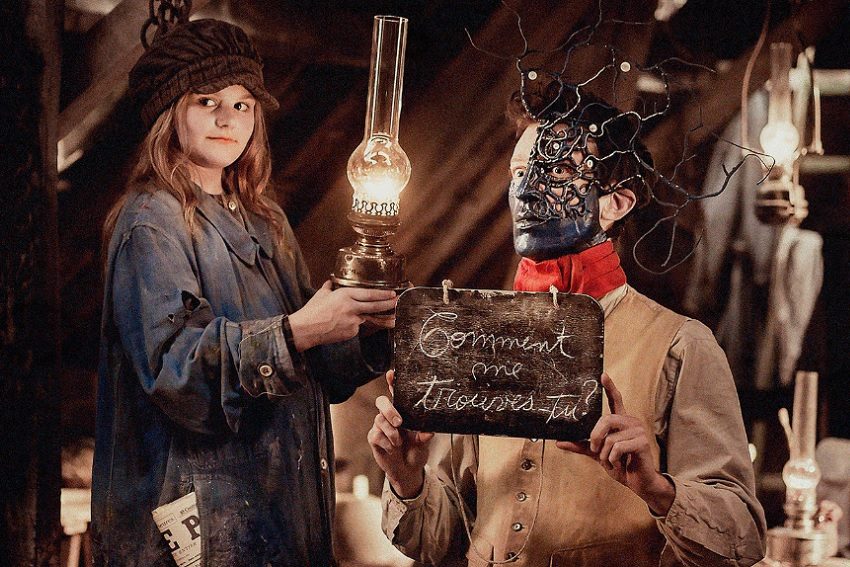Film Review: See You Up There

Drawn from Pierre Lemaitre’s 2013 novel The Great Swindle, See You Up There is a visually sumptuous epic with a touch of the folly about it, but nevertheless offers formidable performances, moments of very French emotion and some gorgeously stylised FX and animation.
The film’s writer/director/star Albert Dupontel has worked as an actor for many years (that’s him with the fire extinguisher at the beginning of Irreversible) and this is his sixth feature as director. While he originally wasn’t going to star, his first choice, Belgian player Bouli Lanners, had to withdraw at the last minute, so Dupontel stepped in to offer a sweetly understated lead performance.
In a classic set-up, this has Albert Maillard (Dupontel) telling his story to Moroccan police in 1920, and we cut to November 1918 and the trenches of Hill 113 where he was serving as a rather average soldier. Maillard explains how they were under the command of the despicable Lieutenant Pradelle (Laurent Laffite), who was willing to callously shoot his own men despite orders for a ceasefire, and Maillard winds up almost crushed by a dead horse after a bombing.
Saved by Edouard Péricourt (Nahuel Perez Biscayart), whose face is left disfigured by an artillery shell, Albert cares for his new friend in a hospital where the nun nurses refuse to administer enough morphine (one says that Jesus suffered too). Stealing drugs, he waits bedside in some weird variation of The English Patient while Edouard has trippy fantasies where we first spy his stern father Marcel (Niels Arestrup).
Albert agrees to help create the lie that Edouard was actually killed in combat, and the two wind up living together in Paris months after the end of the war, with Dupontel’s animation team going all out to recreate the look of the place and time without expensive location shooting and set dressing. Edouard starts wearing theatrical masks and playacting, and if he seems to be understandably losing his marbles, he’s pulled back from the brink by bright young Louise (Héloïse Balster), who’s unafraid of his appearance and becomes his friend and interpreter.
Maillard, however, is forced to deal with Edouard’s oblivious and still-grieving family while also discovering (in one of several coincidences here) that the loathsome Pradelle has married Edouard’s sister Madeleine (Émilie Dequenne). Pradelle is also up to something that explains the original novel’s English title. The sense of outrage at his heartlessness and disrespect is considerable as Dupontel switches tone often, rolling through war drama, character piece, internal-fantasy-world study, deadpan comedy, semi-satire about the evils of greed, and so forth.
Featuring moving work from Dupontel, Biscayart Balster, Lafitte (occasionally looking like a Gallic Tom Selleck) and the rest of a large cast, this does stumble slightly, if only because it’s perhaps a bit too wildly ambitious and there’s just a little too much going on. Yet as so many movies out there take no risks and don’t dare to say anything, Dupontel’s film deserves to be celebrated.
Rated MA. See You Up There is in cinemas now.